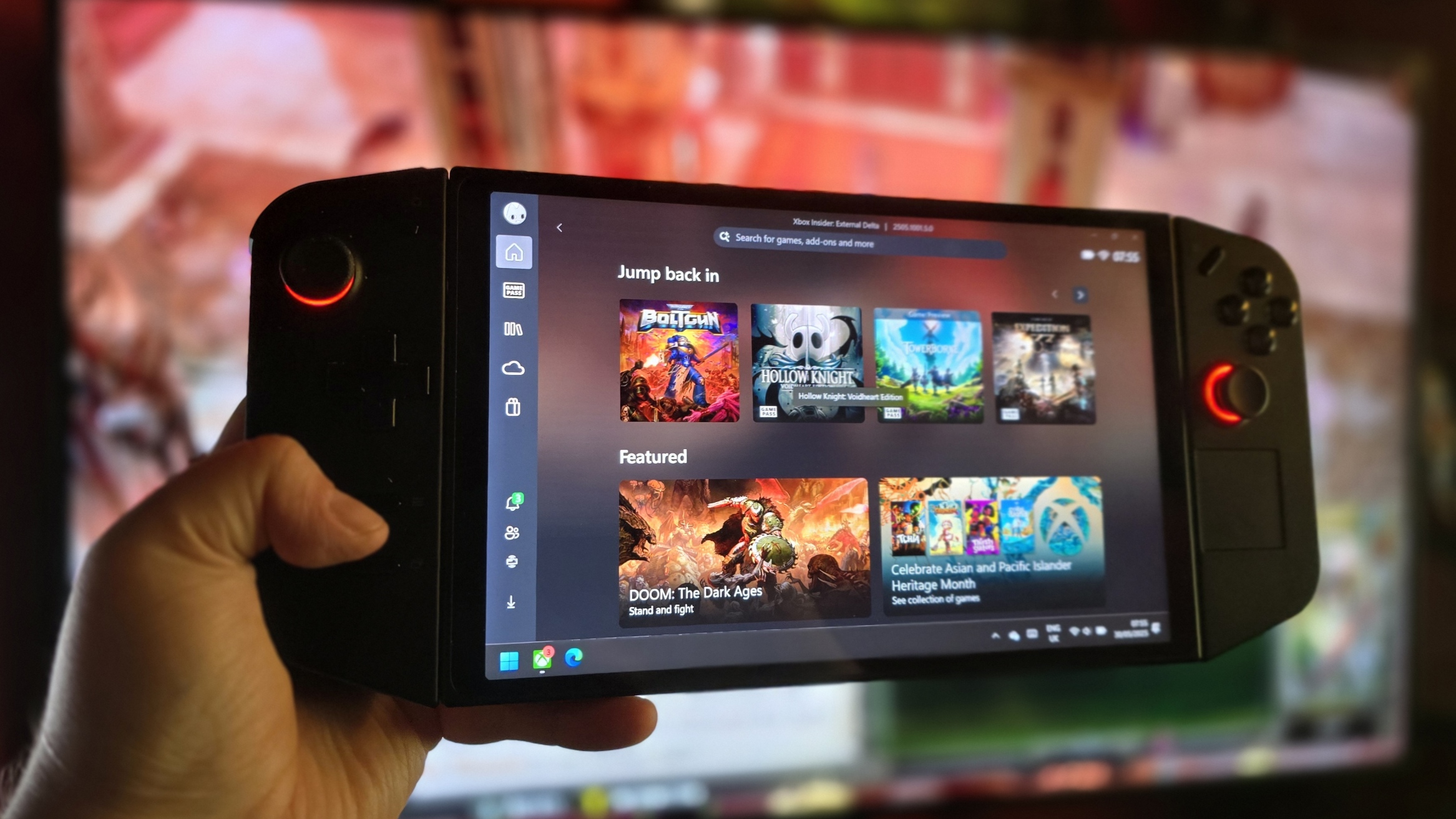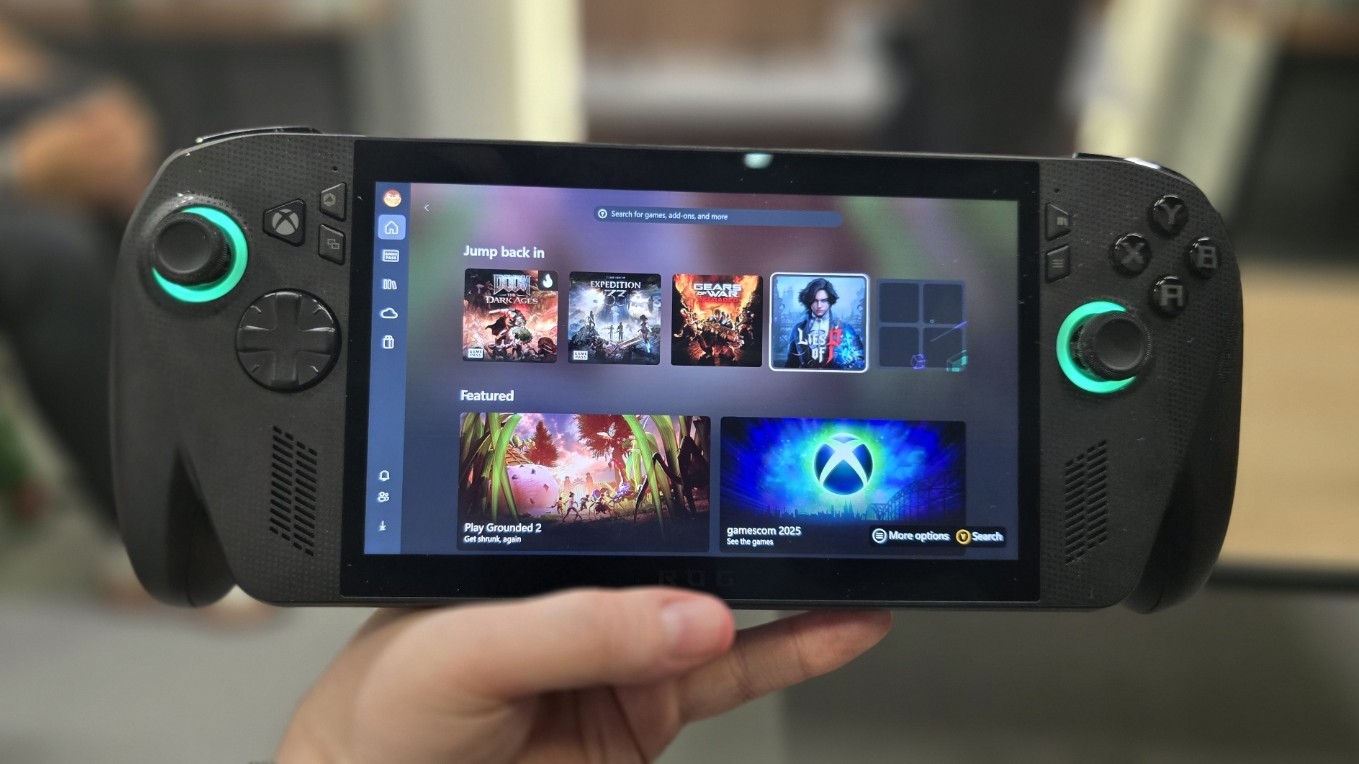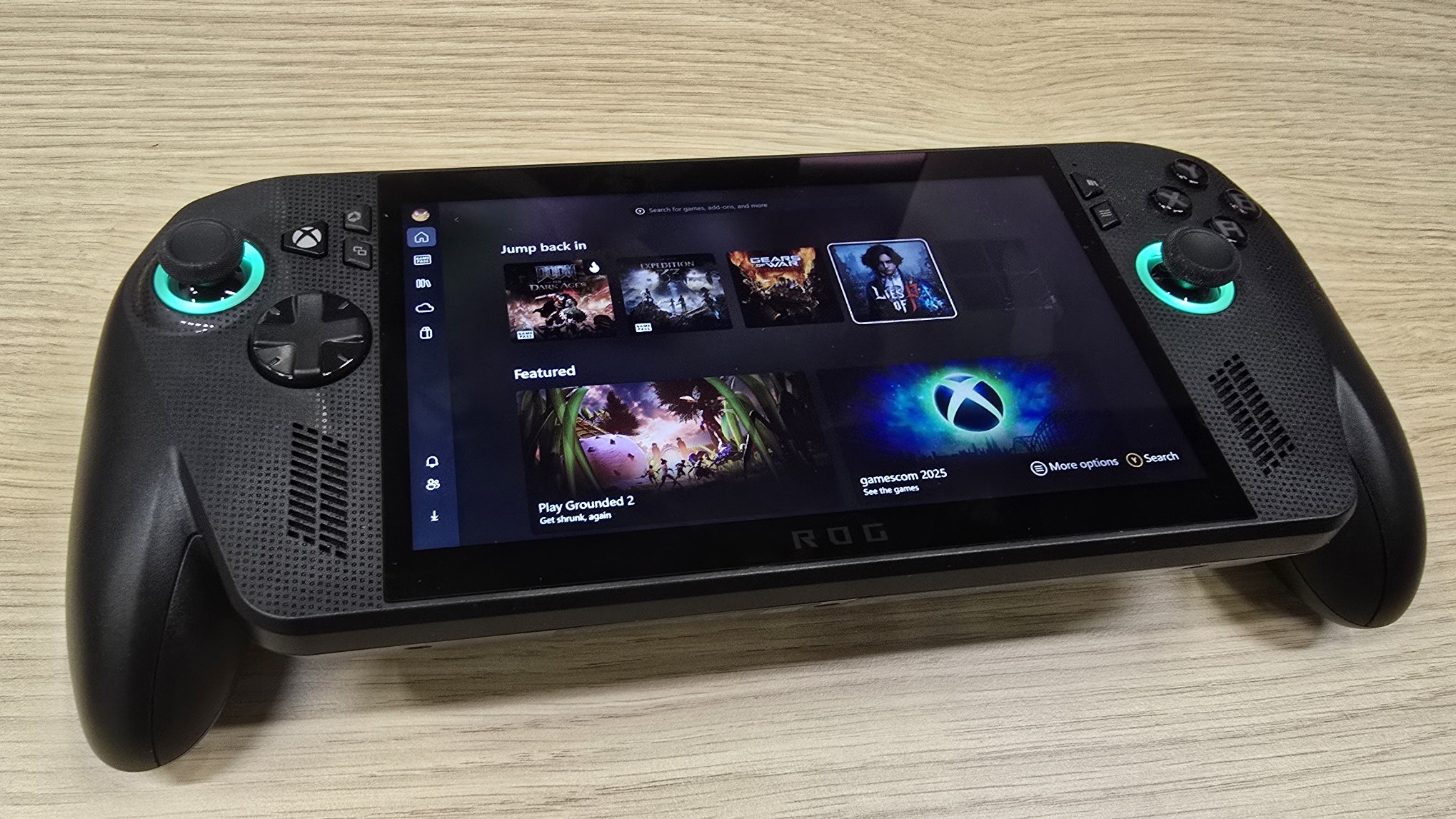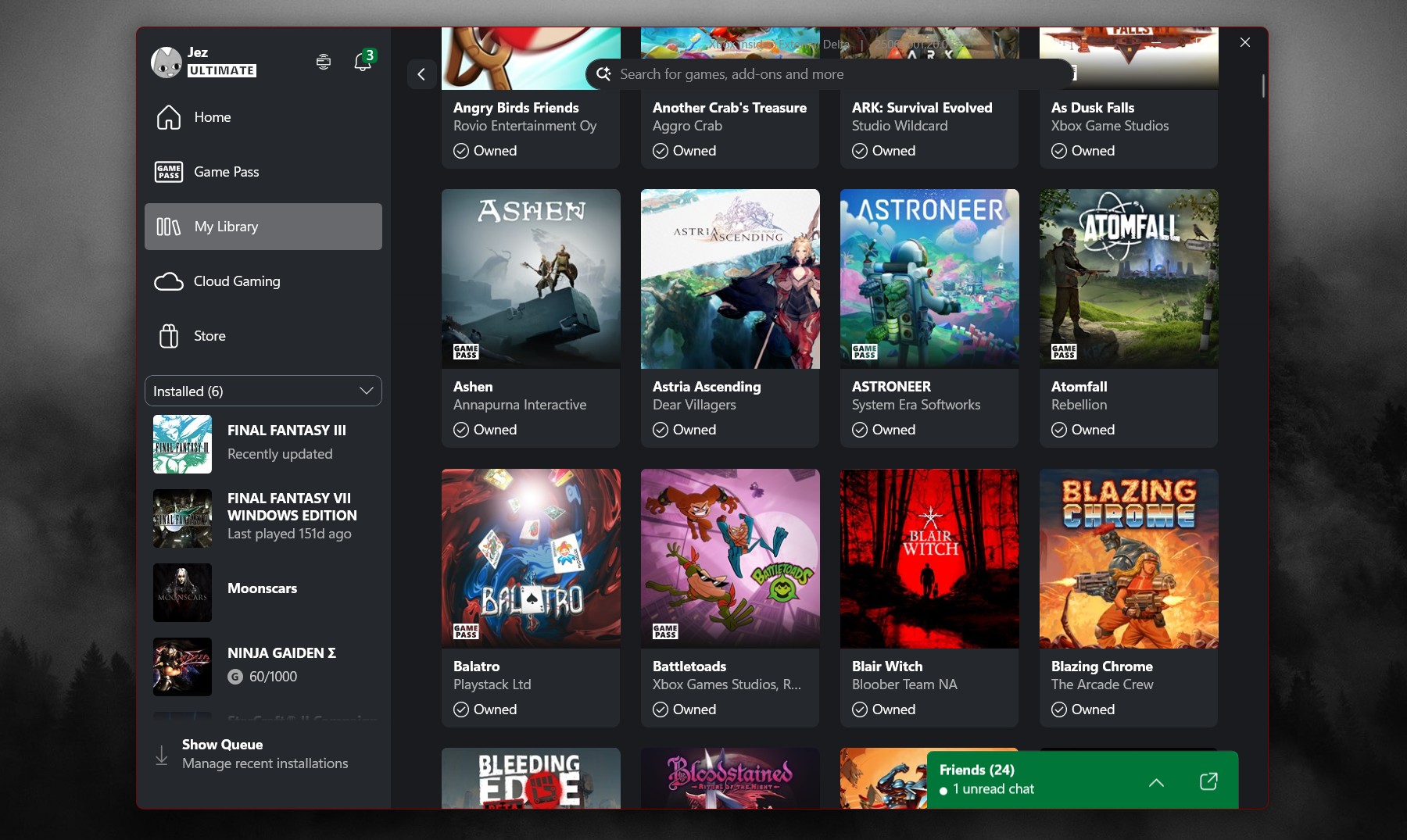Xbox's platform-agnostic approach has a huge, gaping hole — for the Xbox Ally and future devices, this is Microsoft's next big gaming challenge
As good as Xbox Play Anywhere is, it's still indie studios doing the lion's share of the work here. Ahead of the Xbox Ally and OEM Xbox push, this probably isn't good enough.
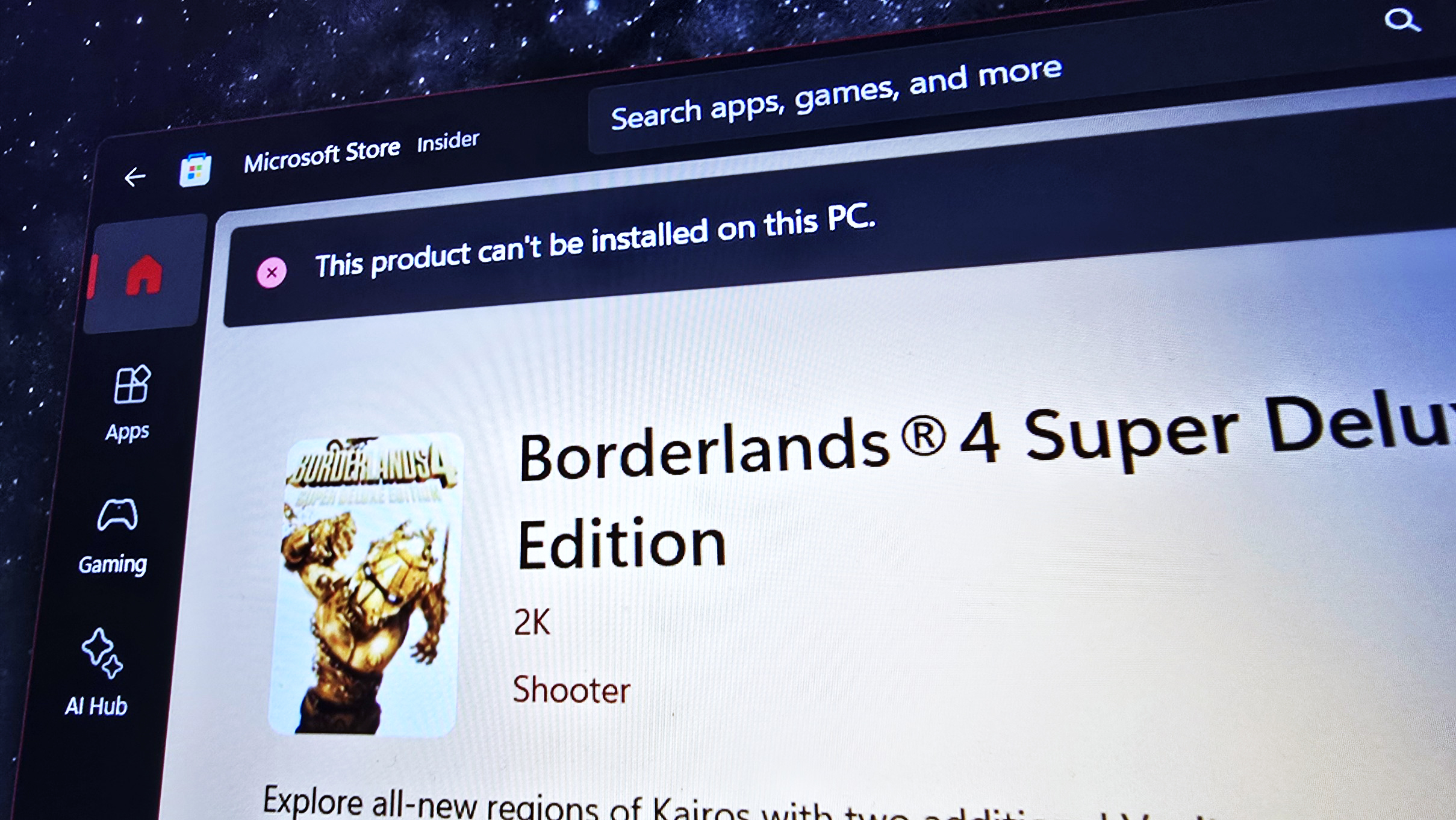
All the latest news, reviews, and guides for Windows and Xbox diehards.
You are now subscribed
Your newsletter sign-up was successful
The Xbox Ally is nearly here, but there's a problem.
Over the past few years, Microsoft has been pushing its Xbox PC platform more and more, leveraging both PC Game Pass and OEM-built PC gaming laptops and handhelds to push the platform. Many Windows 11 OEMs bundle PC or Xbox Game Pass Ultimate with their devices these days, and the Xbox PC app is preinstalled on almost all of these devices too.
For Xbox console users, there's often an added benefit thrown in. Xbox Play Anywhere (also known as XPA internally) is a program which encourages developers to submit games to the Microsoft Store with unified codebases that run across both Xbox consoles and Windows 11 hardware.
Additionally, users who purchase these games receive a license for both versions, complete with cloud saves that run across both platforms. Xbox Cloud Gaming is often also thrown into the mix — allowing you to access these titles from virtually anywhere.
It's an awesome platform, and all of Xbox's modern first-party games support it natively. However, the third-party support has been mixed at best.
Ahead of the Xbox Ally handheld launch and other OEM devices expected to arrive in 2026, Xbox Play Anywhere has yet to really receive any form of organic support from big publishers. That's a huge, and growing, problem for Microsoft's ecosystem efforts.
Xbox Play Anywhere, with caveats
The Xbox Ally is doubtless responsible for an uptick in comments and questions I've received recently about Xbox Play Anywhere.
All the latest news, reviews, and guides for Windows and Xbox diehards.
The Xbox Ally is not an Xbox, despite Microsoft's "This is an Xbox" marketing campaign. It is a Windows 11 PC at its core, which means it will not run a huge portion of your existing Xbox library.
It will only run Xbox console games that have the "Xbox Play Anywhere" branding, found via the Xbox PC app. And yes, there are a lot of Xbox Play Anywhere games, over a thousand as of writing now. But, the quality of this list is another matter entirely.
The Xbox platform is increasingly split in two, between Windows 11 and the traditional Xbox development platform — although the bridges between ecosystems are shrinking. Games built for Xbox consoles are typically unable to run natively on PC, and games packaged for traditional PC environments are typically not able to run on an Xbox console natively either.
Microsoft's Xbox Play Anywhere program allows developers to submit packages for PC and Xbox versions under a single store listing, maintaining save file compatibility across both endpoints.
Microsoft says developers who use Xbox Play Anywhere see boosted engagement. Anecdotally, I can say that I prioritize purchases increasingly based on what games actually support XPA, but it's pretty clear that Xbox users on devices like the Lenovo Legion Go and ASUS ROG Ally represent a pretty niche audience. That audience will likely grow a fair bit when the Xbox Ally drops on October 16.
I've been surprised by how many messages I've received from people who are confused about what kinds of games this system will actually run. But in hindsight, it's pretty clear as to why.
Microsoft has been a strong advocate of backward compatibility for Xbox games, effectively promising backward and forward compatibility for all Xbox games since the Xbox One launch in 2013. Microsoft's next Xbox will also boast full backward compatibility, too. With PC, that's a little trickier.
Many had hopes that Microsoft would build its own Xbox handheld with full compatibility for our existing games, at least the Xbox One or Xbox Series S versions — alas we're getting a traditional gaming PC instead, at least for now. The problem is that a huge amount of AAA games simply don't support Xbox Play Anywhere.
This quarter has been absolutely stacked for high-quality game releases, including games like Cronos: The New Dawn, Hollow Knight: Silksong, and Ready or Not. All of these support Xbox Play Anywhere, too. But what do they have in common?
Xbox Play Anywhere seems to have won support primarily from indie studios and smaller teams
For some reason, Xbox Play Anywhere seems to have won support primarily from indie studios and smaller teams, and sees particularly strong adoption when Xbox Game Pass is included. Alas, big publishers like EA, Ubisoft, Take Two, and Capcom seem ambivalent.
Capcom brought across Resident Evil 7 and then largely dropped the program entirely — seemingly unconvinced of its worth. Square Enix has been very supportive so far with games like Final Fantasy 7 Remake, but dropped it for Final Fantasy Tactics.
I feel like this is becoming a particularly irritating issue as Microsoft pushes its PC platform more and more. Positioning the virtues of roaming profiles and platform agnosticism is particularly problematic when there's a competing platform poised to potentially do it far, far better ...
With Steam rumored to be eyeing the living room, Xbox is on the back foot
The issues with Xbox Play Anywhere honestly extend beyond simply having blanket access to Xbox games — we can't even get AAA devs to organically support the option to buy a separate copy on the Xbox PC store. Borderlands 4 dropped today, and is nowhere to be seen on the Xbox PC app. Capcom gave up on the Xbox PC store after launching Resident Evil 3 Remake, not even bothering to launch Resident Evil 4 or Village. That's a pretty striking indictment of the platform, in my view.
Microsoft's strategy increasingly seems to be pointing at Steam as a competitor, instead of PlayStation, and that's potentially problematic — Microsoft is positioning its gaming platform itself as a weaker version of Steam in that universe, particularly if Steam begins offering devices that can offer a capable living room experience.
Microsoft isn't stopping at the Xbox Ally when it comes to OEM devices. I've heard increasingly credible rumors that Microsoft could be lining up OEM Xbox-branded "living room" gaming PCs with partners for 2026. But, these devices will end up becoming defacto Steam devices, owing to the lack of native support for the Xbox PC ecosystem.
By pushing me towards PC, Microsoft is increasingly, and ironically, pushing me towards using Steam for a lot of my gaming experiences.
Right now, more than half of my gaming library is locked to my Xbox console, and doesn't support the "This is an Xbox" ecosystem Microsoft espouses.
If I truly want all of my games to be on all the devices I own — which is the ecosystem lifestyle Microsoft says I should want — wouldn't it be smarter for me, and anyone else who finds this idea attractive, to move to Steam fully?
With all the work Microsoft is doing to improve Windows 11 for controller gaming and TV-oriented gaming, without the ecosystem and developer support to back it, isn't Microsoft just enhancing Steam's position rather than its own? Steam is one living room PC away from effectively co-opting Microsoft's vision before it even gets off the ground.
Xbox PC and dev support: How can it be fixed?
A big problem stopping developers supporting the Xbox PC store is the sheer complexity over Steam. Submitting a game to Steam is simple and straightforward with minimal certification processes. Valve leaves it up to developers to manage their own quality, and the community is notorious for blitzing games that aren't optimized out of the gate. Borderlands 4 is falling afoul of poor optimization right now.
Microsoft, PlayStation, and Nintendo are generally more aggressive with ensuring a minimal degree of quality before a game hits the store, but it's not always perfect either.
Right now, developers I've spoken to have been pretty clear: they don't see a huge amount of upside supporting the Xbox PC platform natively, let alone "giving away" a dual license via Xbox Play Anywhere. For devices like the Xbox Ally, Xbox Cloud Gaming and Xbox remote play via an existing Xbox console can only go so far towards bridging the gap. Both are fine when you're at home, I'd have to defer to Steam to access most AAA games launching now and in the future due to the lack of Xbox PC support.
Developers I've spoken to have been pretty clear: they don't see a huge amount of upside supporting the Xbox PC platform.
Microsoft needs to do a lot more to boost visibility of the benefits of being in Xbox Play Anywhere, or even the Xbox PC app, from the outset. If there aren't tangible benefits, that needs to be solved too. Perhaps developers supporting Xbox Play Anywhere should get a bigger cut, or direct marketing support. The developer tools need to be improved perhaps too, and the simplicity of doing something as basic as publishing on the Xbox PC app or Xbox console itself needs to be vastly enhanced too.
We live in an era of rapid content digestion. The era of gatekeeping the platform and heavy-handed cert has handed an entire generation to platforms like Steam and Roblox as well, which prioritize access over polish. There's downsides to both approaches, for sure, but Microsoft's Xbox Play Anywhere strategy hinges entirely on having games to actually play.
Microsoft is ironically manufacturing an "app gap" by prioritizing this platform over fighting harder for new users on console ... and we know how that turned out for Windows Phone.

Jez Corden is the Executive Editor at Windows Central, focusing primarily on all things Xbox and gaming. Jez is known for breaking exclusive news and analysis as relates to the Microsoft ecosystem — while being powered by tea. Follow on X.com/JezCorden and tune in to the XB2 Podcast, all about, you guessed it, Xbox!
You must confirm your public display name before commenting
Please logout and then login again, you will then be prompted to enter your display name.
